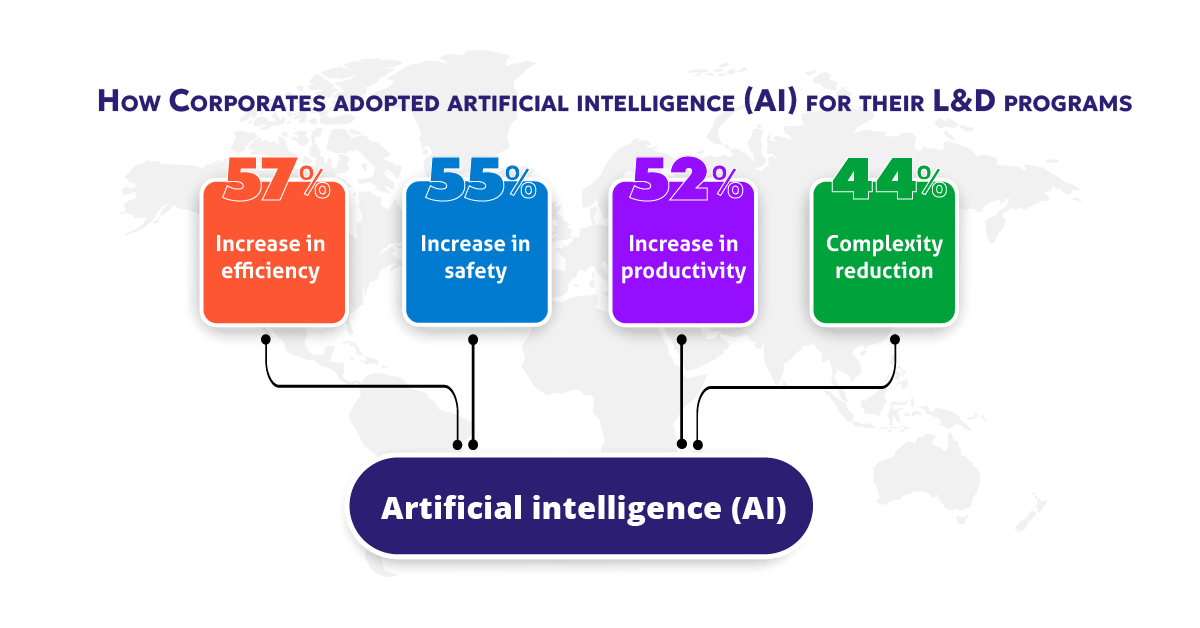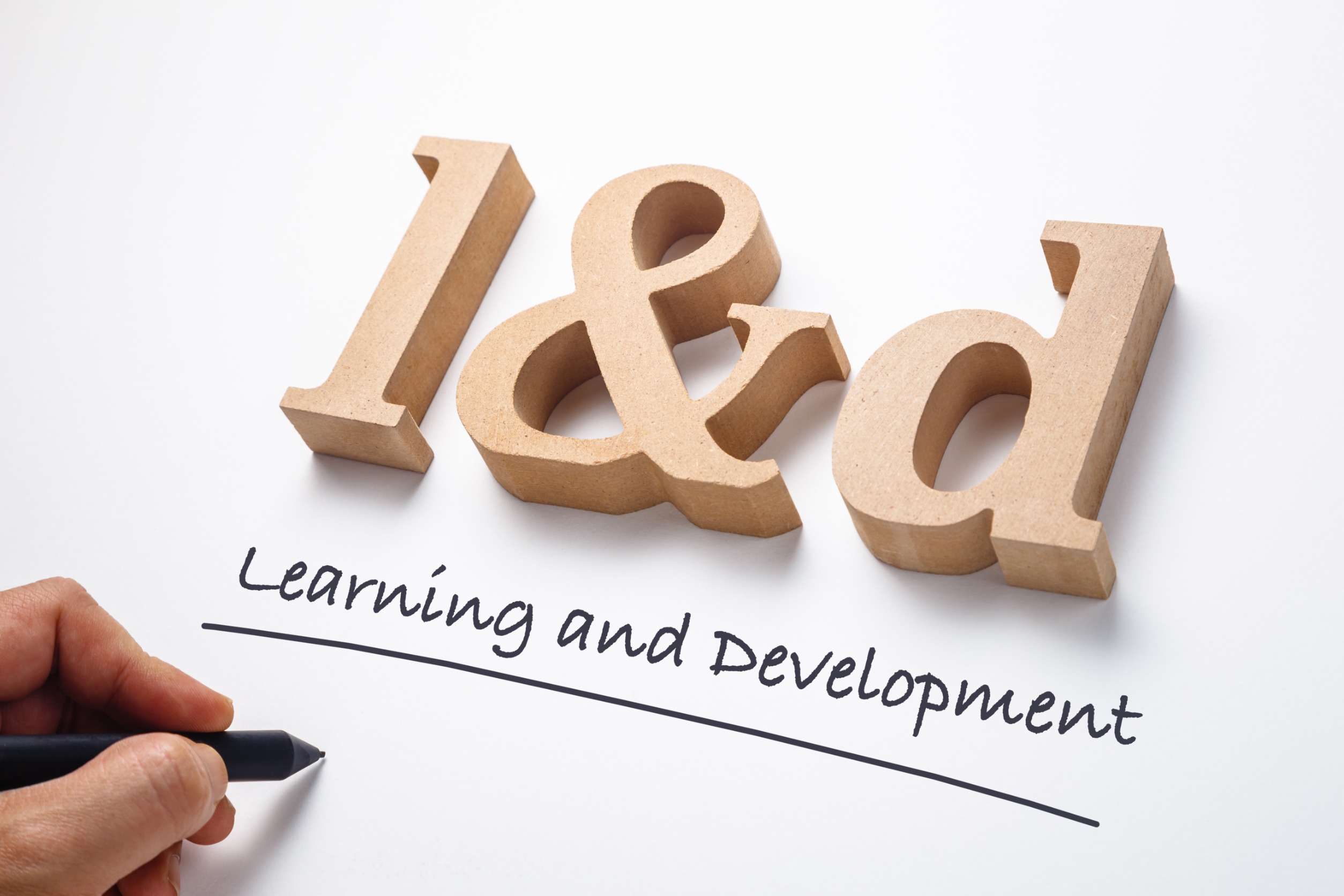With the invention of technologies like ChatGPT and other AI tools, the corporate work culture has seen a significant change in the nature of jobs and how things are done. As more organisations are adopting new technologies with the onset of the AI revolution, it has become imperative for professionals to adapt and learn AI tools and technologies to be at the top of their game. The corporate learning and development sector has become more AI-based with machine learning, predictive analysis, robotics, natural learning processing (NLP), deep learning, etc. Artificial Intelligence has enabled the personalisation of the learning experience through adaptive learning systems where the content is adapted as per the needs of the individual and courses are recommended based on the individual’s learning journey.
It is essential for professionals, especially managers and senior executives, to master AI to ensure that their organisation is not lagging in corporate education and learning. Pursuing a Doctorate in Learning and Development can be an invaluable asset for individuals, providing them with the necessary skills and expertise to seamlessly steer through this AI transformation. By leveraging a professional doctorate in learning and development, corporate professionals can be at the forefront of their organisation’s AI journey and lead the changing landscape of corporate learning and development.
Understanding the Changing Landscape of Corporate Learning
Over the years, we have seen several evolutions in the corporate learning and development sector with the creation of innovative learning systems such as e-learning, blended learning, talent-driven learning, micro-learning, and learning in the flow of work. The evolution of generative AI has greatly impacted the corporate learning sphere as it has enabled the creation of personalised learning paths and the easy creation of adaptive content. Traditional corporate training focused on courses and programs that were mainly teacher-led and involved a lot of time consumption. Often the traditional methods of organising training workshops and classes fall short as they fail to address the individual needs of employees and identify their unique areas of improvement.
Generative AI that enables the creation of personalised learning has brilliantly addressed this issue. Artificial Intelligence is designed to consolidate information from large corpora of data and present them in a concise and digestible way. AI technologies have been adapted to understand, organise and synthesise data and information in a way that traditional instruction design has been unable to cope with. Hence, AI-driven technologies in corporate L&D have not only made the learning process efficient but also effective in a way that enables employees to learn with their workflow.
Why AI is Revolutionizing Learning and Development?
As corporate organisations struggle to stay ahead of the curve in the dynamic and competitive business world, they are increasingly recognising the need for effective learning and training for their employees. The AI innovation has not only enhanced the importance of employee upskilling but also is leading business learning by creating unique, effective learning systems catering to individual needs. AI technologies that are at the spearheading corporate are machine learning, NLP, Augmented Learning, Virtual Reality and Simulations.
- Machine Learning: Machine learning is a form of artificial intelligence that enables machines to enhance their abilities by learning from experience rather than relying on explicit programming. It uses algorithms and statistical models to examine data, identify patterns, and create forecasts. In contrast, deep learning is a more sophisticated form of machine learning where artificial neural networks analyse huge amounts of data to uncover intricate insights.
- Natural Language Processing: Personalised learning relies heavily on natural language processing (NLP). NLP enables machines to understand and interpret human language, allowing workers to interact with AI-powered systems through voice commands or text-based interfaces. This helps employees to have interactive and adaptable learning experiences, ensuring accessibility and engagement.
- Augmented Learning: Augmented learning involves merging AI capabilities with human expertise to create a successful blend. Artificial intelligence algorithms are utilised in intelligent tutoring and mentorship programs to offer employees personalised advice, feedback, and assistance. Though AI can offer valuable insights and resources, human educators contribute their distinct perspectives and backgrounds. By combining AI-powered technologies with human educators, companies can establish an interactive and impactful learning atmosphere.
- Virtual Reality and Simulations: AI is also contributing to the rise in the utilisation of virtual reality (VR) and simulations for corporate training. Virtual Reality (VR) creates immersive environments that replicate real-life situations, enabling workers to practice and utilise their skills in a safe and enjoyable environment. When AI is integrated with VR, it can provide personalised feedback and adjustable learning experiences, enhancing the realism and effectiveness of training.
Schneider Electric, a French corporation specialising in energy management and automation, developed a platform known as Open Talent Management (OTM), where employees could connect with each other, look for new opportunities, and learn the latest skills and technologies based on their job roles. With complete AI integration in the year 2023, OTM now provides all-in-one learning solutions to employees. With AI-based learning paths, the platforms enable employees to connect with other like-minded people and get personalised training recommendations which enable them to advance their career paths.
The Role of a Professional Doctorate in Learning & Development in Leading Corporate AI-Driven Learning
 As Artificial Intelligence has become an integral part of the business world, corporate leaders and senior managers across industries are now looking for innovative ways to make use of AI. Nick Day from Roundtable Learning once stated “Studies have shown that early adopters of artificial intelligence (AI) for their L&D programs have seen, on average, a 57% increase in efficiency, 55% increase in safety, 52% increase in productivity, and 47% complexity reduction”
As Artificial Intelligence has become an integral part of the business world, corporate leaders and senior managers across industries are now looking for innovative ways to make use of AI. Nick Day from Roundtable Learning once stated “Studies have shown that early adopters of artificial intelligence (AI) for their L&D programs have seen, on average, a 57% increase in efficiency, 55% increase in safety, 52% increase in productivity, and 47% complexity reduction”
To delve deeper into the role of AI in corporate L&D, obtaining a Doctorate in Learning and Development can be a suitable option for professionals. A Professional Doctorate in Learning and Development allows candidates to immerse in the theories of machine learning, and other AI technologies, gaining an intricate understanding of new-age technological advancements and their impact on the corporate world. The doctorate-level research programs enable professionals to enhance their careers and match the ever-evolving pace of the dynamic business world.
Pursuing a Doctorate in Learning and Development provides candidates with exposure to the latest advancements in artificial intelligence and allows them to devise and strategise innovative ways to incorporate AI in corporate learning and development. A doctorate equips the candidates with the skillsets and abilities for effective use of AI in solving complex organisational; problems.
Enhancing Employee Skills Through AI and Data Analytics
Deloitte's revolutionary US$1.4 billion Project 120 aims to set industry standards for learning and development (L&D) by curating personalised pathways for tech and leadership skills. With over a million hours of training focusing on future technology applications, including AI and quantum computing, the program is moulding the next generation of leaders at Deloitte University.
As the focus is shifting from upskilling for current jobs to preparing people for a tech-driven future, the personalised learning experience is shaping corporate learning and development. Project 120 by Deloitte tailors development based on an individual's background and experiences with an emphasis on adapting to Gen Z's learning preferences and adding more content to reach more people through various channels. Deloitte has also partnered with other businesses in the market becoming a pioneer in the changing landscape of corporate training and technological advancements.
The corporate L&D has shifted from role-based training programs to personalised learning based on the individual’s interests and career aspirations. Corporate learning has also taken a gradual shift towards the development of soft skills and employee well-being. L&D is now seen as a crucial requirement for attracting and retaining top talent, particularly Generation Z. The evolving expectations in leadership development prioritise human development alongside professional growth, making L&D a key priority for companies.
Doctoral-Level Leadership: Preparing for the Future of Learning
Corporate learning will be increasingly influenced by the integration of artificial intelligence and data-driven technologies. Organisational leaders, senior managers and experienced professionals with a Doctorate in Learning and Development will have a unique advantage to spearhead the changing landscape of corporate L&D because they will have the leadership qualities along with technical knowledge needed to build innovative learning strategies.
Professionals equipped with doctoral programs command the ability to navigate the challenges of integrating AI into learning and development. Graduates have the know-how to keep up with technological advancements, so they can make sure that their companies are strategically implementing the latest AI technologies to promote a culture of ongoing learning and development.
Dr Mitali Roy, a corporate soft-skill trainer with over 32 years of experience, pursued an online Professional Doctorate in Learning and Development from East Bridge University. As per her experience in the pursuit of her doctoral program, she says that the degree has helped her to summarize her lifelong learning and experience into a more meaningful experience of lifelong learning. Read Dr. Mitali Roy's full story here
Choosing the Right Doctorate Program for Learning and Development
Choosing the appropriate program is essential for professionals thinking about pursuing a Doctorate in Learning and Development. A robust program should prioritise both AI technologies and corporate learning strategies. The most beneficial programs are those that enable you to understand the theoretical concepts along with a practical approach. A research-focused program that will keep you up-to-date with the latest advancements in AI and corporate learning.
Conclusion
AI integration in corporate training is revolutionizing how organisations handle employee skill development and learning. Businesses can unlock their workforce's potential by utilising AI-powered personalisation, enhancing training effectiveness, and combining AI with human knowledge. However, overcoming obstacles in execution and guaranteeing ethical concerns are essential for finding the right equilibrium between technological advancements and human principles.
In the coming years, artificial intelligence (AI) has great potential to further transform the corporate learning environment, promoting a mentality of continuous learning and helping organisations adapt to a constantly changing world. Hence, for organisations to remain at the top of their game, the people in the management and leadership positions must be well-equipped with AI technologies and their implementation. Pursuing a Doctorate in Learning and Development can be the pathway towards earning the essential skillsets required to seamlessly navigate the changing landscape of corporate training.
East Bridge University offers an Online Doctorate Degree in Learning and Development that helps professionals to advance their careers with industry-focused learning, and a practical approach towards research.
Gear your career towards excellence! Visit our website
Written By : Rajashree Dey




